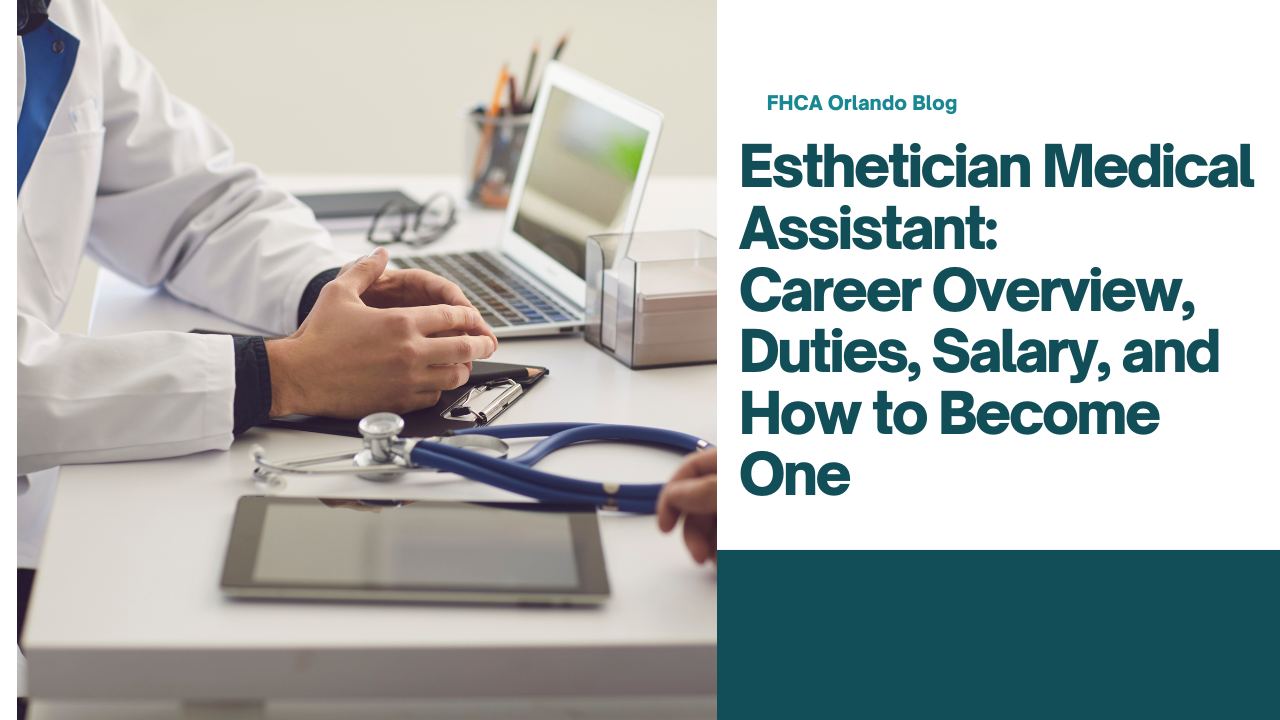Why is Phlebotomy Important? Key Reasons and Role in Healthcare
Nov 01, 2024
Phlebotomy is a vital component of healthcare, serving as the foundation for accurate diagnostics and effective treatment. By drawing and handling blood samples with precision, phlebotomists play a critical role in ensuring reliable lab results.
For professionals in this field, understanding how to renew phlebotomy license is essential to maintaining their qualifications and continuing to provide excellent patient care.
Beyond diagnostics, phlebotomy also helps monitor patients' ongoing health, guiding medical decisions and contributing to comprehensive care. The expertise of phlebotomists is essential for maintaining the highest standards of patient safety and care quality.
While phlebotomists are highly skilled in blood collection, many wonder, can a phlebotomist give injections? This depends on their training, certification, and the regulations in their state, as some roles may involve administering injections with additional qualifications
Table of Contents
- Why is phlebotomy important?
- The role of phlebotomists in healthcare
- Reasons why phlebotomists are essential in healthcare
- How to become a phlebotomist
- Start your phlebotomy career today
Why is phlebotomy important?
Phlebotomy is a critical procedure in the medical field, and it is used for various purposes. It involves drawing blood samples essential for testing, diagnosing, and monitoring health conditions.
These tests can help detect abnormalities in the liver, kidneys, spleen, and other vital organs, allowing healthcare professionals to make informed treatment decisions. For more information on potential work settings for phlebotomists, see Where Can a Phlebotomist Work.
The role of phlebotomists in healthcare
Phlebotomists are key contributors to the healthcare system, performing essential tasks that support accurate diagnostics and patient care.
Their expertise goes beyond drawing blood, involving a range of responsibilities that ensure patient comfort and reliable test results. To compare phlebotomists and other healthcare roles, refer to Phlebotomy vs CNA.
Collect blood samples for laboratory testing
Phlebotomists are highly trained in accurately and efficiently drawing blood samples, minimizing patient discomfort.
These samples are then sent to the laboratory for a range of tests, including complete blood counts, metabolic panels, and disease screening.
The data obtained from these tests is crucial for diagnosing conditions, assessing treatment efficacy, and guiding medical decisions.
Ensure proper handling and labeling of specimens
Proper specimen handling is a fundamental responsibility for phlebotomists. They must follow strict protocols to avoid contamination or sample degradation, which could lead to inaccurate test results.
This includes adhering to guidelines for temperature control, using the correct containers, and ensuring that each sample is labeled accurately with the patient’s information.
Provide comfort to patients during procedures
Phlebotomists often interact with patients who are anxious or fearful of needles. Using a gentle approach, they aim to make the blood draw as comfortable as possible.
Techniques such as distraction, conversation, and clear communication help ease the procedure, especially when working with children, elderly patients, or individuals with special needs.
Collaborate with medical staff for accurate results
Phlebotomists are integral healthcare team members, coordinating with doctors, nurses, and laboratory personnel to ensure that blood samples are taken under the right conditions and at appropriate times.
This collaboration is essential for obtaining accurate test results, which are then used to diagnose illnesses, determine treatment plans, and monitor patient recovery.
Reduce patient anxiety and ensure a positive experience
This is particularly important in settings like pediatric care or with patients who have previously had traumatic medical experiences, ensuring that the overall healthcare experience remains positive and supportive.
Creating a calm and reassuring environment is part of a phlebotomist’s skill set.
For a closer look at the day-to-day responsibilities, see a day in the life of a phlebotomist to understand the demands and rewards of this essential role in patient care
Reasons why phlebotomists are essential in healthcare
Phlebotomists play a remarkable role in modern healthcare, providing essential services that support the diagnosis, monitoring, and treatment of various health conditions.
Their expertise is increasingly vital due to evolving healthcare demands and advancements in medical practices.
"The blood taken from blood draws by phlebotomists can provide important information about a person’s health.
It can help doctors check for diseases, monitor certain ongoing conditions, or conduct other medical tests."
- Aging population needs
As the population ages, the demand for healthcare services grows, particularly for regular blood tests to monitor chronic conditions such as diabetes, cardiovascular disease, and kidney function.
Phlebotomists are essential in meeting this demand, ensuring that older patients receive the routine blood tests necessary for managing their health and catching any abnormalities early.
- Disease monitoring requirements
Chronic diseases require consistent monitoring to track progress and treatment effectiveness.
Phlebotomists provide the crucial service of collecting blood samples for ongoing evaluations helping physicians adjust medications and therapies to improve patient outcomes.
Their role in disease management is fundamental for maintaining patient health over time.
- Telemedicine integration
With the rise of telemedicine, there is an increased need for accurate lab results that can be analyzed remotely.
Phlebotomists facilitate this process by collecting blood samples that can be sent to labs for testing, allowing healthcare providers to make informed decisions during virtual consultations.
Their role supports the seamless integration of lab services into telehealth, making remote care more effective.
- Patient care quality
Phlebotomists contribute significantly to the quality of patient care by ensuring that blood samples are taken with precision and care.
Their ability to handle patients compassionately, reduce anxiety during procedures, and ensure accurate labeling of specimens contributes to a more positive healthcare experience.
How to become a phlebotomist
Starting a career as a phlebotomist and learning how to get phlebotomy experience requires a combination of education, hands-on training, and certification. Each step is designed to ensure that aspiring phlebotomists are well-prepared to perform their duties with accuracy and compassion.
Educational requirements
A high school diploma or equivalent (GED) is the minimum educational requirement to pursue a career in phlebotomy. Basic courses in biology, anatomy, and health sciences are beneficial for building a strong foundation in medical knowledge.
Enroll in a phlebotomy training program
Phlebotomy training programs are available at vocational schools, community colleges, and medical institutions.
These programs typically cover the theoretical aspects of blood collection, safety procedures, anatomy, and patient interaction. Practical lab sessions are included to provide hands-on practice in drawing blood.
Obtain phlebotomy certification
After completing a training program, obtaining a phlebotomy certification is often a requirement for employment.
Certifications from recognized bodies like the American Society of Phlebotomy Technicians (ASPT) or the National Phlebotomy Association (NPA) validate your skills and expertise, making you a more competitive candidate.
Explore specializations
Phlebotomists can specialize in various fields, such as pediatric phlebotomy, geriatric phlebotomy, or donor phlebotomy.
Specializations involve additional training and focus on specific techniques to work effectively with different patient groups, enhancing your skill set and opening up diverse job opportunities.
Hands-on training and practical experience
Hands-on training is a crucial component of becoming a skilled phlebotomist.
Many programs require a clinical internship or externship, allowing you to practice blood draws under supervision in a healthcare setting. This practical experience is vital to gain confidence, master techniques, and prepare for a professional environment's demands.
Start your phlebotomy career today
Take the first step towards a rewarding healthcare career by enrolling in the phlebotomy program at FHCA. Our theoretical training provides you with the skills and knowledge needed to become a competent and confident phlebotomist.
With the most expert instructors and a focus on patient care, FHCA equips you with everything you need to excel in this growing field.










